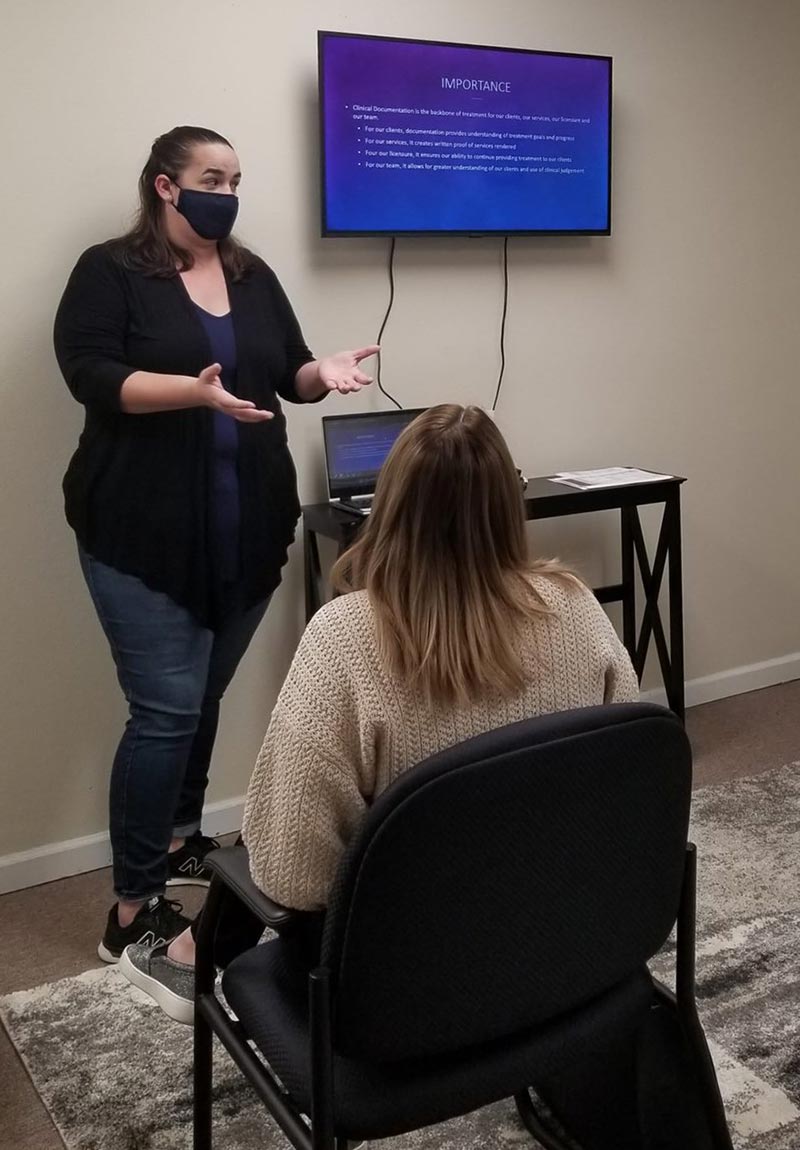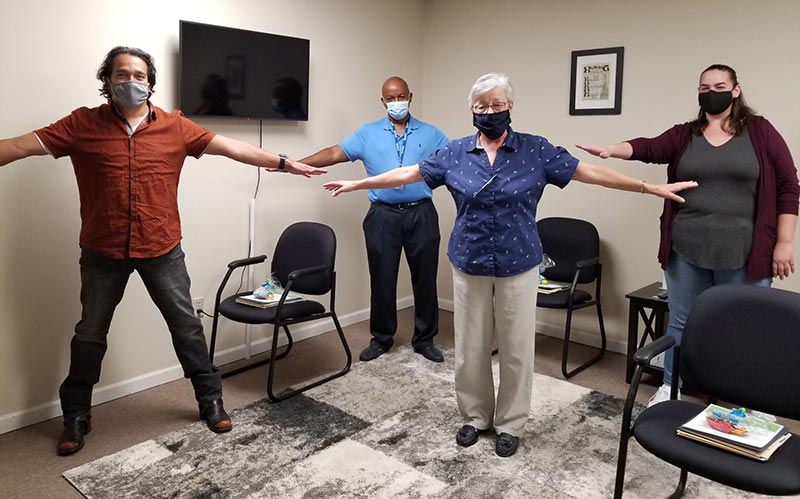

The pandemic has presented challenges for GEO Reentry in many ways, especially when it comes to introducing new employees to the workplace. GEO Reentry’s Southwestern Illinois Correctional Center (SWICC) rose to the challenge and held new hire Orientation Training for 10 new employees recently. Orientation is a purposeful way to welcome new team members, provide a company overview, and establish a path for employees to feel at ease with their new surroundings and fellow co-workers.
GEO Reentry delivers a modified therapeutic community model at the Illinois Department of Corrections’ SWICC, a 763-bed, male, minimum security facility. The SWICC treatment model treats the person as a whole in a peer community setting, supporting participants through treatment phases, which promote increased levels of responsibility. Inmates in the treatment regimen are housed away from the prison general population, and participants in the program are directly involved in program delivery, including leading group sessions, monitoring each other for adherence to program rules, and resolving conflicts while working on their own antisocial behaviors.
Lori Moore, GEO Program Director at the In-Prison treatment program, along with Assistant Directors Warren Johnson and Norma Miles, Program Coordinator Bruce Morrison, Clinical Manager Margaret O’Connor, and Clinical Supervisors Tommie Anderson, Paula Butler, Roderick Goff, Keaunna Jett, and Sonya Thomas participated in the orientation to welcome their new colleagues.
Virtual special guests included Dr. Latoya Barber, Vice President, Reentry In-Custody Treatment, and Korri Hicks, Central Region Training Specialist, Continuum of Care Training Institute. They spoke to the group about the company and its culture. Current staff were also on hand to welcome their new colleagues and answer any questions they might have.
The orientation covered many topics, including precautionary measures specific to COVID-19 such as taking temperatures upon entering the facility, social distancing, wearing PPE, and cleanliness of work areas in addition to the therapeutic services and training tools staff use with program participants.

